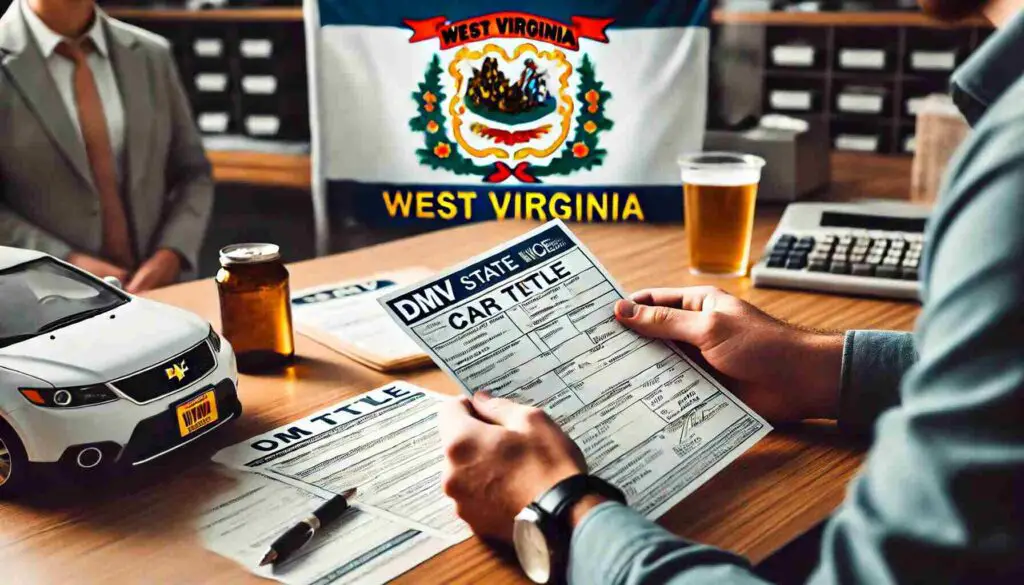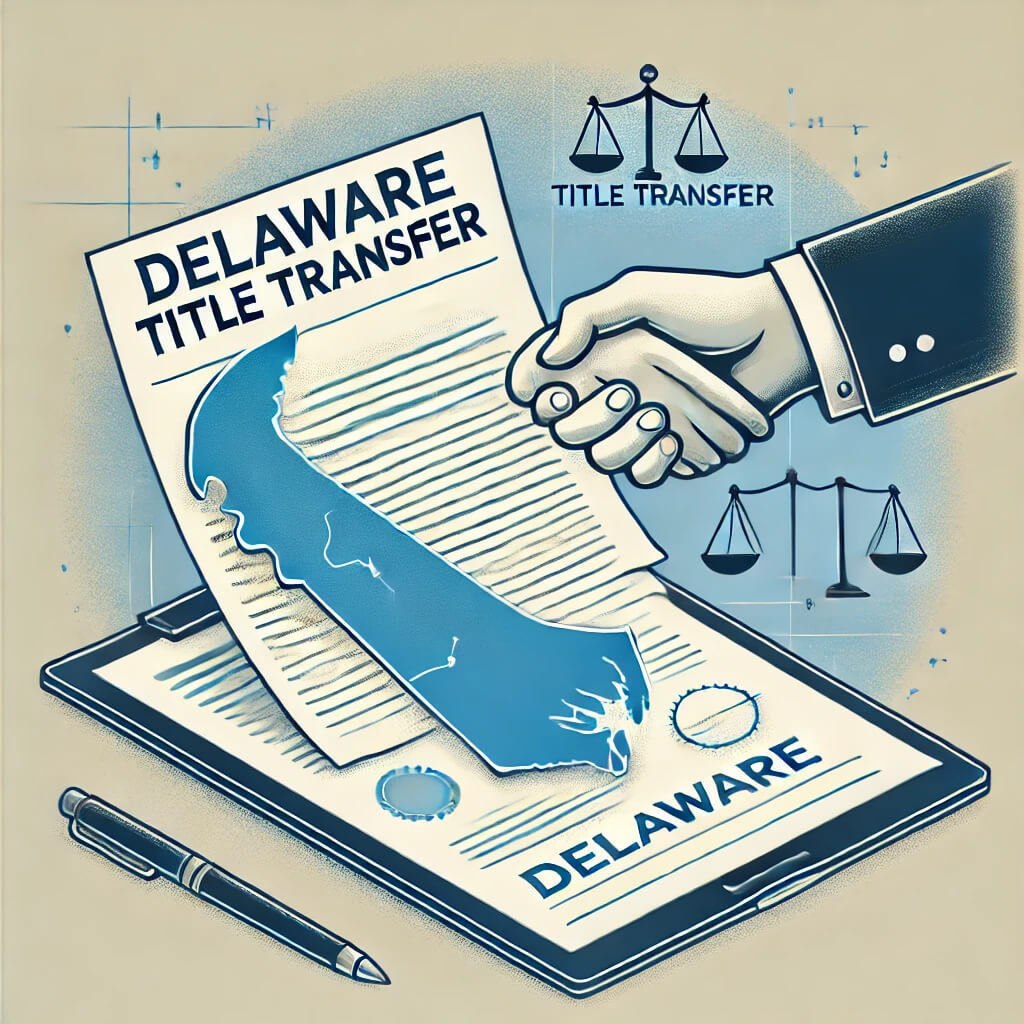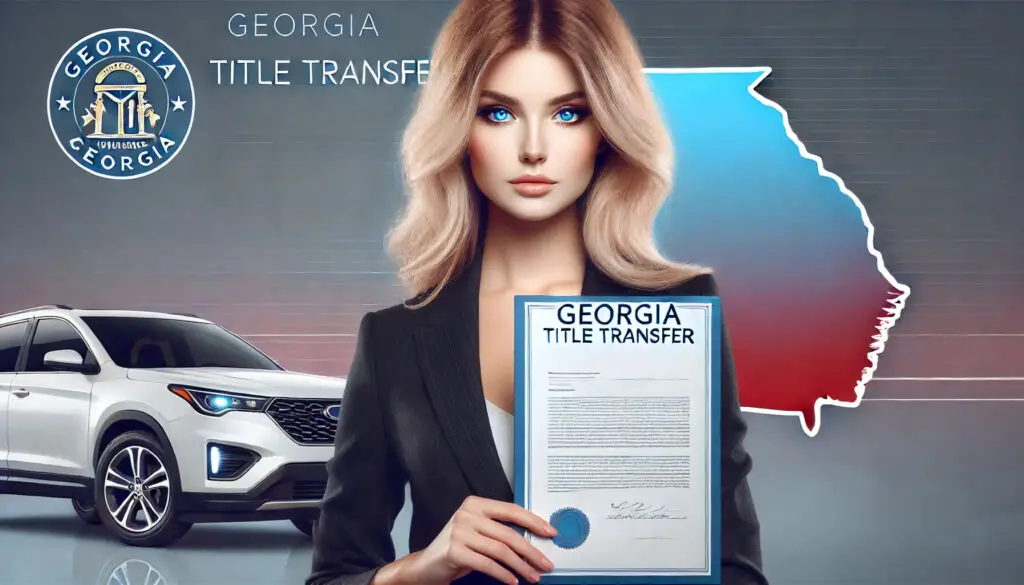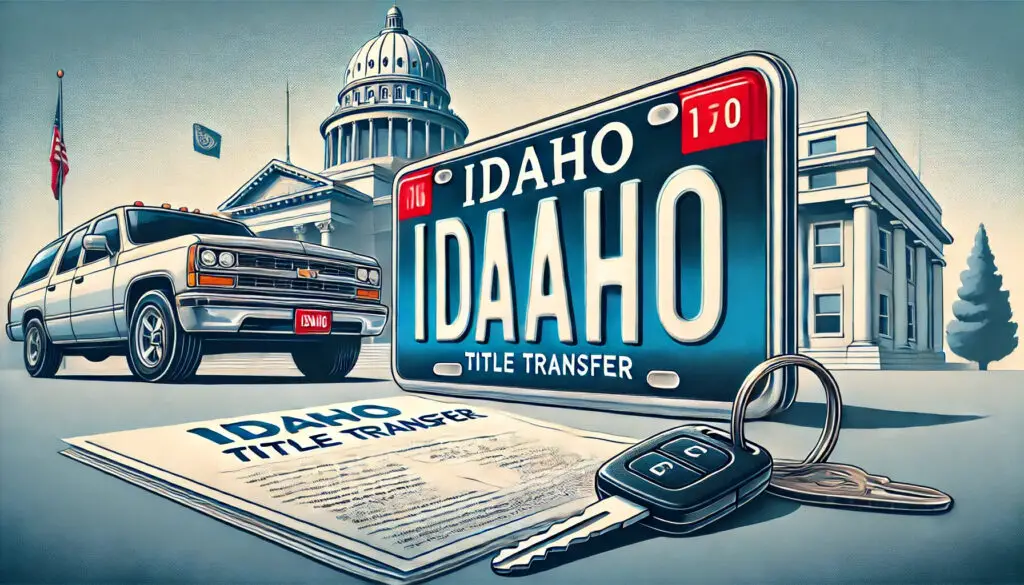Navigating the intricacies of transferring vehicle titles in West Virginia is crucial to ensuring a smooth transition of ownership. Our comprehensive guide breaks down each step of the process, equipping you with the knowledge needed to successfully complete your title transfer.
Understanding the Importance of Title Transfers
Legal Requirement
Title transfers serve as essential legal procedures mandated by state and federal laws to establish rightful ownership of a vehicle. The process ensures that the new owner is officially recognized by the governing authorities, thereby legitimizing their claim to the vehicle.
Protection Against Disputes
Properly transferring a title provides crucial protection for both the buyer and seller. By documenting the change of ownership through a formal transfer, potential disputes regarding ownership rights can be avoided or resolved more efficiently.
Liability Management
Title transfers also play a significant role in managing liabilities associated with vehicle ownership. Once a title transfer is completed, the seller is no longer held accountable for any accidents, violations, or other issues involving the vehicle. Conversely, the buyer assumes responsibility for the vehicle and any related obligations.
Verification of Ownership
A transferred title serves as tangible proof of ownership, providing legal validation of the transaction. This documentation is often required for various purposes, including vehicle registration, insurance coverage, and resale.
Access to Rights and Privileges
Owning a vehicle without a properly transferred title may limit access to certain rights and privileges, such as obtaining financing, applying for insurance, or participating in government programs. Completing a title transfer ensures that the new owner can fully enjoy the benefits associated with vehicle ownership.
Preserving Market Value
Maintaining accurate and up-to-date title records is essential for preserving the market value of a vehicle. A properly transferred title enhances the vehicle’s credibility and transparency in the marketplace, potentially increasing its resale or trade-in value.
Compliance with Regulations
Title transfers are subject to specific regulations and requirements established by state and federal authorities. Failure to adhere to these regulations can result in legal consequences, fines, or penalties. Therefore, completing a title transfer is essential for ensuring compliance with applicable laws.
Peace of Mind
Ultimately, properly transferring a title provides peace of mind for both parties involved in the transaction. By formalizing the change of ownership through a legally recognized process, buyers and sellers can proceed with confidence, knowing that their rights and interests are protected under the law.
Overview of West Virginia Title Transfer Process
Who Needs to Perform a Title Transfer?
Both sellers and buyers are integral to the title transfer process, each fulfilling distinct roles to ensure a smooth transition of vehicle ownership.
Sellers’ Responsibilities:
- Provide a Signed Title: Sellers are required to furnish a properly signed title document, transferring ownership of the vehicle to the buyer. This document serves as legal proof of the transfer of ownership.
- Proof of Insurance: Sellers must present valid proof of insurance coverage for the vehicle being sold. This documentation assures the buyer that the vehicle is adequately insured at the time of transfer.
- Bill of Sale: A bill of sale is essential for documenting the details of the transaction, including the sale price, date of sale, and identification of the parties involved. This document serves as additional evidence of the sale.
- Disclosure of Mileage: Sellers must disclose the mileage of the vehicle accurately. Federal and state regulations mandate the disclosure of mileage to prevent odometer fraud and ensure transparency in the transaction.
Buyers’ Responsibilities:
- Complete Application for Certificate of Title: Buyers are responsible for completing the application for a certificate of title for the vehicle they are purchasing. This application provides essential information about the buyer and the vehicle and initiates the title transfer process.
- Pay Required Fees: Buyers must pay the necessary fees associated with the title transfer process. These fees typically cover administrative costs, taxes, and registration fees, and may vary depending on the specifics of the transaction.
Understanding and fulfilling these responsibilities is crucial for both sellers and buyers to facilitate a successful title transfer. Compliance with these requirements helps ensure legality, transparency, and accountability throughout the transaction process.
Preparation for Title Transfer
Proper preparation is essential for a seamless title transfer process. By ensuring that all necessary documents and information are gathered beforehand, individuals can expedite the process and minimize potential complications.
Necessary Documents for a Smooth Transition
Gathering the required documents is the initial step in preparing for a title transfer. These documents typically include:
- Signed Title: The signed title serves as the primary document transferring ownership of the vehicle from the seller to the buyer. Ensuring that the title is properly signed and dated is crucial for a valid transfer.
- Proof of Insurance: Proof of insurance provides verification that the vehicle is adequately insured at the time of transfer. This documentation assures the buyer and the relevant authorities that the vehicle is covered in the event of an accident or loss.
- Bill of Sale: A bill of sale documents the details of the transaction, including the sale price, date of sale, and identification of the parties involved. This document serves as additional evidence of the sale and may be required by the DMV.
- Additional Disclosures: Depending on state regulations, sellers may need to provide additional disclosures, such as mileage information or vehicle history reports. These disclosures help ensure transparency and compliance with legal requirements.
Completing the Application for Certificate of Title for a Motor Vehicle (DMV-1-TR)
The DMV-1-TR form is a crucial document used to apply for a certificate of title in West Virginia. Properly completing this form is essential to ensure the accurate and efficient processing of the title transfer. Key steps in completing the DMV-1-TR form include:
- Provide Accurate Information: Ensure that all information provided on the form is accurate and up-to-date. This includes details about the buyer, seller, vehicle identification number (VIN), and any liens or loans associated with the vehicle.
- Verify Signatures: Both the seller and buyer must sign the DMV-1-TR form to certify the accuracy of the information provided. Verifying that signatures are properly executed helps prevent delays or complications during processing.
- Attach Supporting Documents: Include any required supporting documents, such as proof of insurance, bill of sale, or additional disclosures, along with the DMV-1-TR form. Providing complete documentation helps expedite the processing of the title transfer.
- Submit Form to DMV: Once the DMV-1-TR form is completed and signed, submit it to the West Virginia Division of Motor Vehicles (DMV) along with any required fees. Depending on preference and convenience, the form can be submitted in person, by mail, or online.
By following these steps and ensuring that all necessary documents are gathered and completed accurately, individuals can streamline the title transfer process and avoid potential delays or complications. Proper preparation is key to a successful and efficient transfer of vehicle ownership.
Step-by-Step Guide to the Title Transfer Process
Once you’ve gathered all necessary documents and completed the DMV-1-TR form, you’re ready to proceed with the title transfer process. Follow these step-by-step instructions to ensure a seamless transfer.
1. Completing the Paperwork
Properly filling out the DMV-1-TR form is the first crucial step in completing the paperwork for your title transfer. Ensure that all fields on the form are completed accurately and legibly to avoid any delays in processing. Key points to consider include:
- Providing accurate information about the buyer, seller, vehicle details, and any existing liens or loans.
- Double-checking all entries for accuracy and completeness before submission.
- Including any required supporting documents, such as proof of insurance, bill of sale, or additional disclosures, along with the DMV-1-TR form.
2. Signing the Title Correctly as Seller and Buyer
Both the seller and buyer must sign the title correctly to facilitate the transfer of ownership. It’s essential to follow the instructions provided on the title carefully to ensure that signatures are placed in the appropriate locations. Key considerations include:
- Verifying that all signatures are clear, legible, and match the names printed on the title.
- Ensuring that signatures are placed in the designated spaces on the title document.
- Using black or blue ink to sign the title, as required by most DMV offices.
3. Gathering Required Documents
In addition to the signed title, gather all required documents necessary for the title transfer process. These may include proof of insurance, a bill of sale, and any necessary disclosures mandated by state regulations. Before submitting your application, double-check that you have everything required, including:
- Proof of insurance coverage for the vehicle being transferred.
- A completed bill of sale documenting the details of the transaction.
- Any additional disclosures required by law, such as mileage information or vehicle history reports.
4. Double-Checking for Accuracy
Before proceeding with the title transfer, take a moment to double-check all paperwork and documents for accuracy and completeness. Verify that all information provided is correct and consistent across all forms and documents. This step can help prevent delays or complications during the processing of your title transfer application.
By following these step-by-step instructions and ensuring that all necessary paperwork is completed accurately and thoroughly, you can facilitate a smooth and efficient title transfer process. Proper preparation and attention to detail are key to a successful transfer of vehicle ownership in West Virginia.
Signed Title: What You Need to Know
Proof of Purchase: Bill of Sale and Dealer Invoice
Disclosure of Mileage: Federal and State Regulations
Federal and state regulations require the disclosure of mileage for most vehicles during the title transfer process. Failure to accurately disclose mileage can result in legal penalties and complications.
Submitting Your Application
Once you’ve completed all necessary paperwork and gathered required documents, you can submit your application for title transfer. West Virginia offers multiple submission methods to accommodate your preferences.
In-Person Submission: Where to Go
Visit your local DMV office to submit your title transfer application in person. Be sure to bring all required documents and payment for applicable fees.
Mail Submission: Address and Tips
If unable to submit in person, you can mail your title transfer application to the appropriate DMV address. Ensure all documents are securely packaged and include payment for fees.
Online Submission through the NDTC: A Step-by-Step Guide
For added convenience, consider submitting your title transfer application online through the NDTC portal. Follow the step-by-step instructions provided to complete your submission efficiently.
Paying the Fees
Title transfer fees in West Virginia vary depending on factors such as vehicle type, weight, and county of residence. Understanding the breakdown of fees and how to calculate them is crucial to budgeting for your transfer.
Breakdown of Fees: Title, Registration, and Others
Title transfer fees typically include charges for the title itself, registration, and any additional services requested. Familiarize yourself with these fees to avoid surprises during the transfer process.
How to Calculate Your Fees
Calculating title transfer fees requires consideration of various factors, including vehicle type, weight, and county of residence. Utilize online fee calculators or consult with your local DMV office for accurate fee estimates.
Receiving Your New Title
After submitting your title transfer application and paying the required fees, you can expect to receive your new title within a specified processing time. Knowing what to expect can help alleviate any concerns or uncertainties.
Typical Processing Times
Processing times for title transfers in West Virginia can vary depending on factors such as submission method and workload at the DMV. Generally, expect to receive your new title within a few weeks of submission.
What to Do If You Don’t Receive Your Title
In the event that you do not receive your new title within the expected timeframe, contact the West Virginia DMV for assistance. They can provide updates on the status of your application and address any issues that may arise.
Special Cases in Title Transfers
Certain situations may require special considerations when transferring vehicle titles in West Virginia. Familiarize yourself with these scenarios to ensure a smooth transfer process.
Handling Out-of-State Titles
Transferring an out-of-state title requires additional steps and documentation. Be prepared to provide proof of ownership and comply with West Virginia’s requirements for out-of-state transfers.
Dealing with a Lien on the Vehicle
If the vehicle has a lien on it, additional documentation may be required to complete the title transfer process. Consult with the lienholder to obtain any necessary paperwork and ensure the lien is properly addressed.
Transferring Titles for Inherited Vehicles
Transferring a title for an inherited vehicle involves specific procedures and documentation. Be prepared to provide proof of inheritance and comply with West Virginia’s requirements for inherited vehicle transfers.
Selling a Vehicle Without a Title in West Virginia
Selling a vehicle without a title in West Virginia is not recommended, as it can lead to legal complications and difficulties for the buyer. If the title is lost or missing, take steps to obtain a replacement before completing the sale.
Frequently Asked Questions
Addressing common questions and concerns can help clarify any uncertainties surrounding the title transfer process in West Virginia. Here are answers to some frequently asked questions:
Can I drive a vehicle while waiting for the title transfer?
While awaiting the completion of the title transfer process, you may be able to drive the vehicle using a temporary permit or dealer-issued tags. Consult with your local DMV for guidance on temporary driving permissions.
What if the vehicle has a lien on it?
If the vehicle has a lien on it, additional steps may be required to complete the title transfer process. Contact the lienholder for guidance on satisfying the lien and transferring the title properly.
How do I transfer a title if the owner is deceased?
Transferring a title for a vehicle owned by a deceased individual involves specific procedures and documentation. Consult with legal counsel or the West Virginia DMV for guidance on transferring ownership in these circumstances.
Can I perform a title transfer online for a vehicle bought in another state?
In some cases, you may be able to perform a title transfer online for a vehicle purchased in another state. However, requirements and eligibility may vary, so consult with your local DMV for guidance specific to your situation.
What are the penalties for late title transfers in West Virginia?
Penalties for late title transfers in West Virginia may include fines, late fees, and restrictions on vehicle registration. It’s essential to complete your title transfer promptly to avoid these consequences.
Addressing these frequently asked questions provides valuable information to individuals navigating the title transfer process in West Virginia. By understanding these key points, individuals can proceed with confidence and ensure a smooth and compliant transfer of vehicle ownership.
Conclusion
Mastering the West Virginia title transfer process is essential for anyone buying or selling a vehicle in the state. By understanding the requirements, gathering necessary documents, and following the outlined steps, you can ensure a smooth and efficient transfer of ownership.
Additional Resources
For more information and assistance with the title transfer process in West Virginia, consult the following resources:
- West Virginia DMV Website
- West Virginia DMV Forms
- Contact Information for the West Virginia DMV: 1-800-642-9066
These resources provide valuable guidance and support for individuals navigating the title transfer process in West Virginia. Whether you need access to forms, online services, or personalized assistance, the West Virginia DMV website and contact information offer comprehensive resources to help you complete your title transfer smoothly and efficiently.
This detailed guide provides comprehensive information on the West Virginia title transfer process, equipping you with the knowledge needed to navigate the process successfully and ensure a seamless transition of vehicle ownership.









